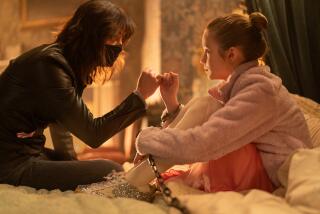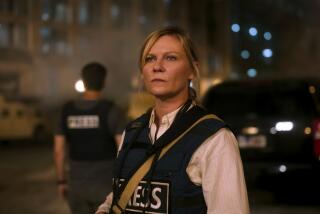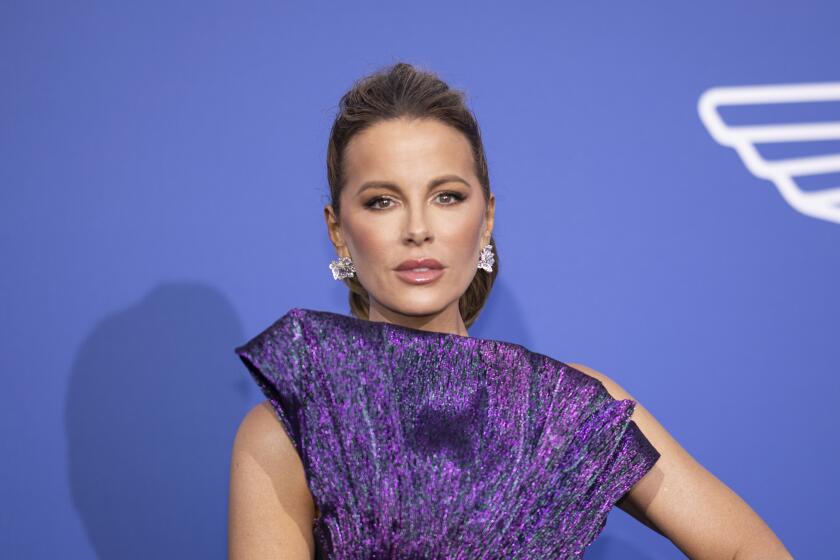Movie review: ‘Tamara Drewe’
Ah, to be in English farce. Rolling country hills, quaint farms and grazing cows might be the sun-dappled backdrop for “Tamara Drewe,” but muddier passions and ill-timed tomfoolery are the driving engine of director Stephen Frears’ latest, a verdant — if somewhat vacant — helping of sex and comedy.
Adapted by Moira Buffini from Posy Simmonds’ plucky, bittersweet graphic novel, the film first introduces us to a few seemingly peaceful yet inwardly roiling characters in picturesque Ewedown: hack mystery novelist and not-so-secret philanderer Nicholas ( Roger Allam); his house-tending, career-managing wife Beth (Tamsin Greig), who runs their farm as a writers’ retreat; strapping handyman Andy (Luke Evans), pining to reclaim a neighboring farm that his family sold to wealthy Londoners; and a schlumpy American academic (Bill Camp) waxing scholarly on Thomas Hardy.
In fact, it’s Hardy’s turbulent novel “Far From the Madding Crowd” to which “Tamara Drewe” gives a contemporary goosing. That love story’s romance-hopping Bathsheba is now saucy siren Tamara ( Gemma Arterton), a successful journalist returning to Ewedown to wreak havoc among the men, and even the females: When she takes up with a flashy, petulant rock drummer ( Dominic Cooper), it sends two star-struck, spying teen girls — Jody (Jessica Barden) and Casey (Charlotte Christie) — into paroxysms of tabloid-fueled jealousy and clandestine mischief.
As swiftly paced, alluringly photographed (by Ben Davis) and rollickingly performed as it all is, the problem of “Tamara Drewe” is that for all its larkish jabs at the emotionally destructive impulses of distracted bourgeois weekenders, the movie feels like something dabbled in, as opposed to thought through. And when Frears isn’t aiming his full emotional intelligence toward material — as with, say, “The Queen” and “My Beautiful Laundrette” — he begins to lean heavily on condescension and generic slickness (hello, “Mrs. Henderson Presents”).
His actor favoritism is all too apparent too, and it turns what should have been a romp into an awkward mixer. Pushed toward pompous caricature early on, Allam flounders later when needed to be taken seriously. Arterton’s dazzling carnal forthrightness in the first half, meanwhile, simply disappears in the second when the story’s ripples widen and Frears seems more interested in making a movie about profanely delusional pot-stirrer Jody. Barden is an eyes-on-me dynamo, but the character’s antagonistic antics seem more worrisome than cheeky.
It all leaves “Drewe” and its often jarring turns of motivation and tone — a maliciously sent (but plot-convenient) e-mail, Tamara’s inexplicable bed partners and a third-act death — feeling haphazard and cartoony, and the whole thing more a vibrant mess than something comically disarming.
calendar@latimes.com
More to Read
Only good movies
Get the Indie Focus newsletter, Mark Olsen's weekly guide to the world of cinema.
You may occasionally receive promotional content from the Los Angeles Times.






